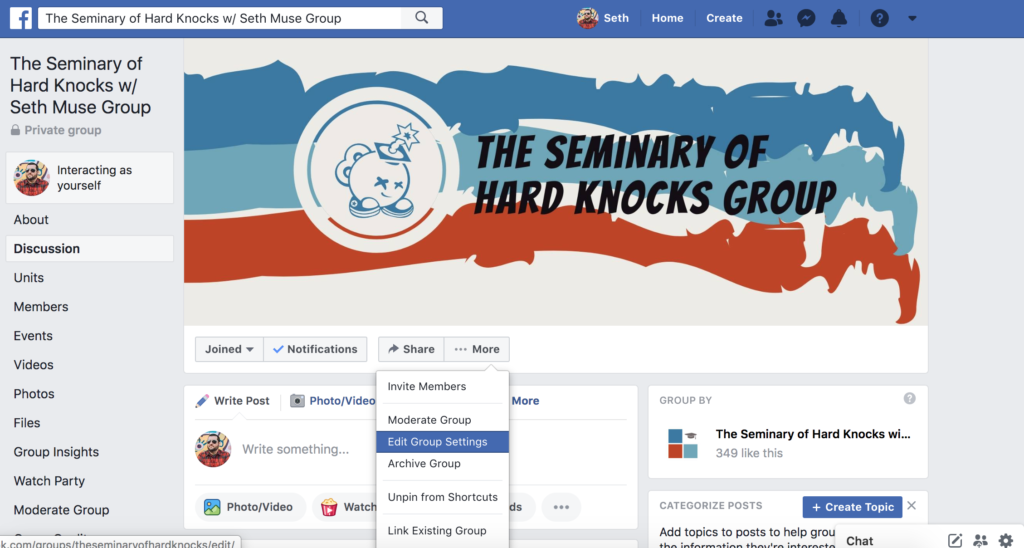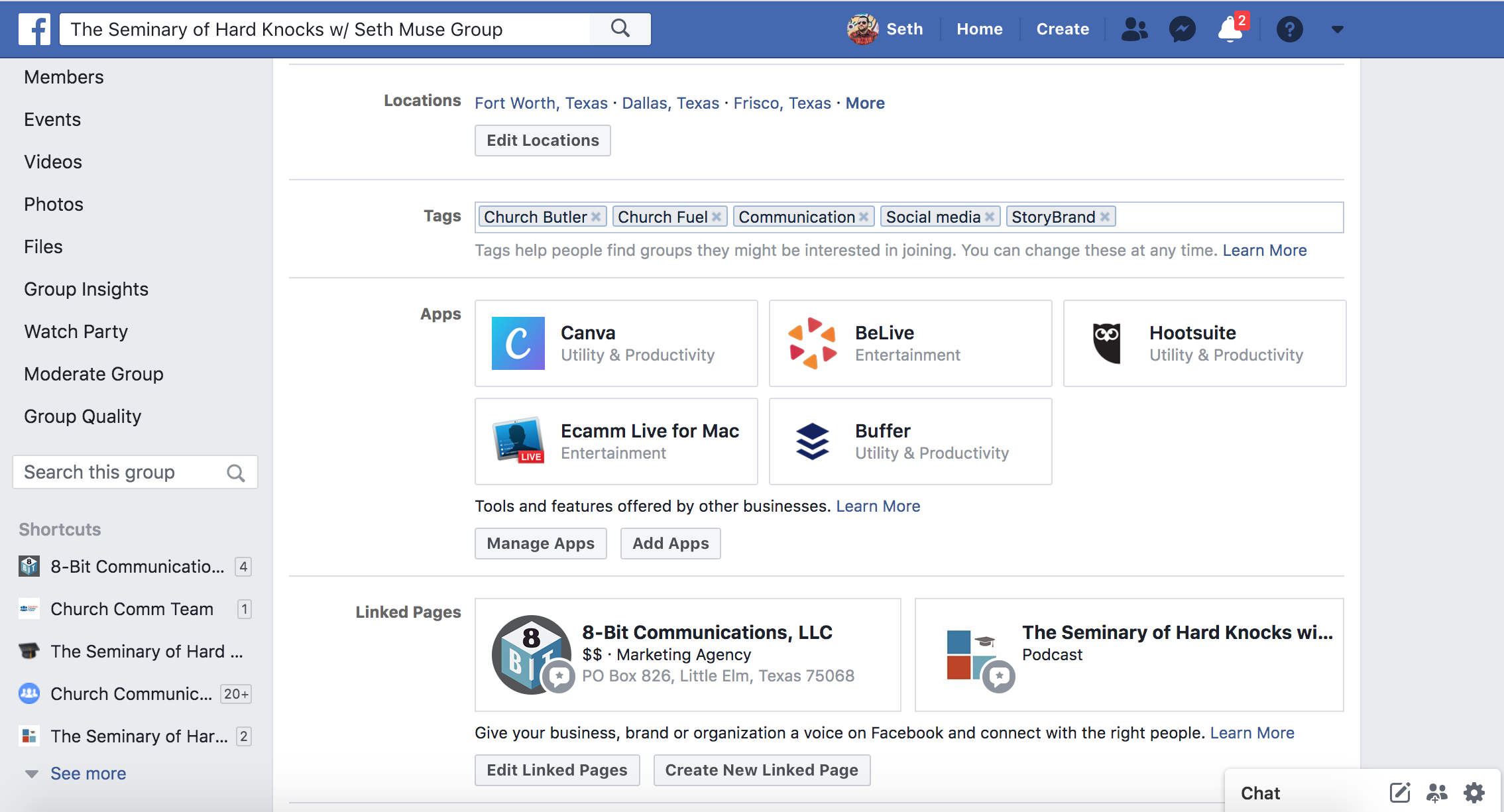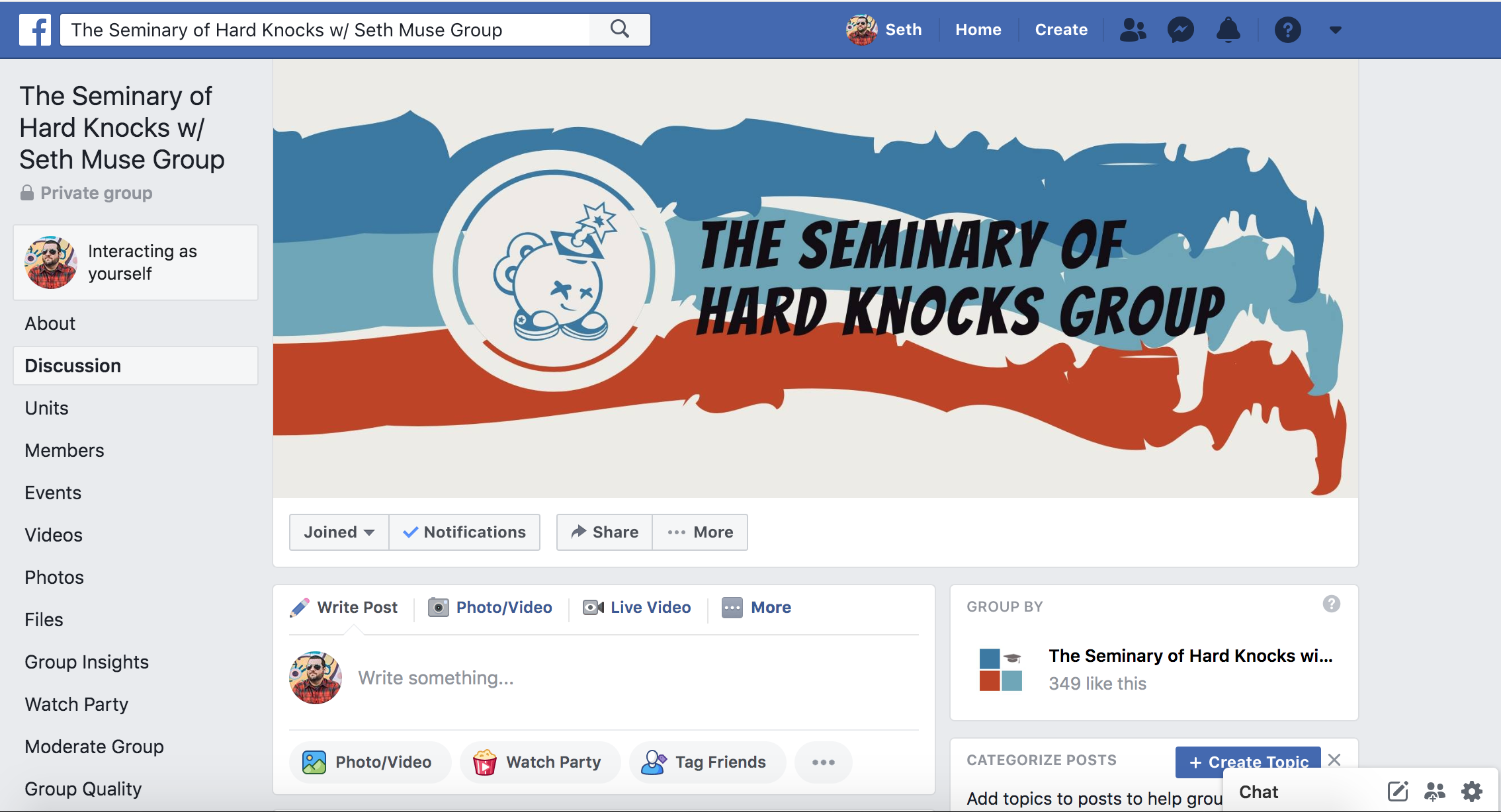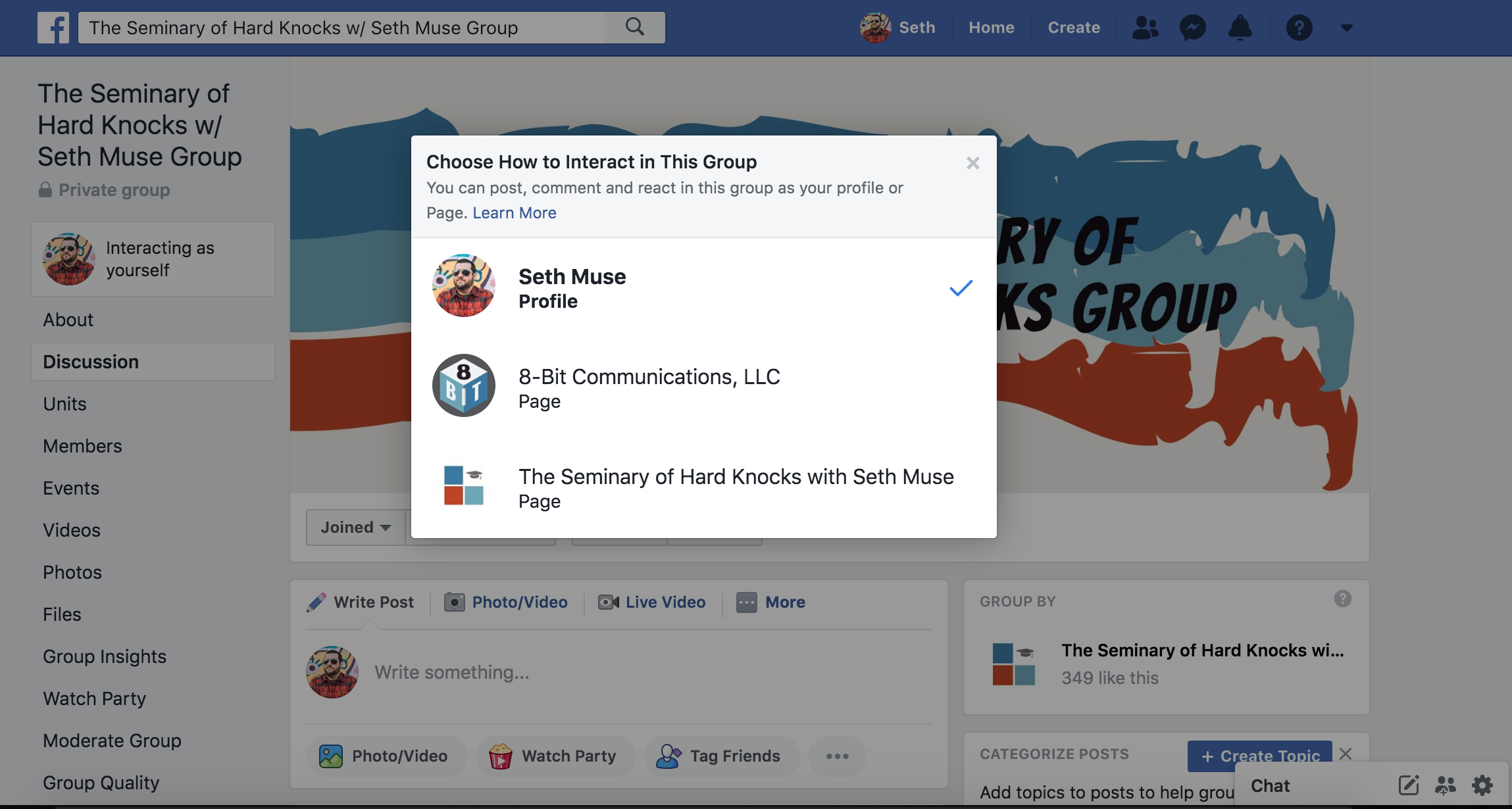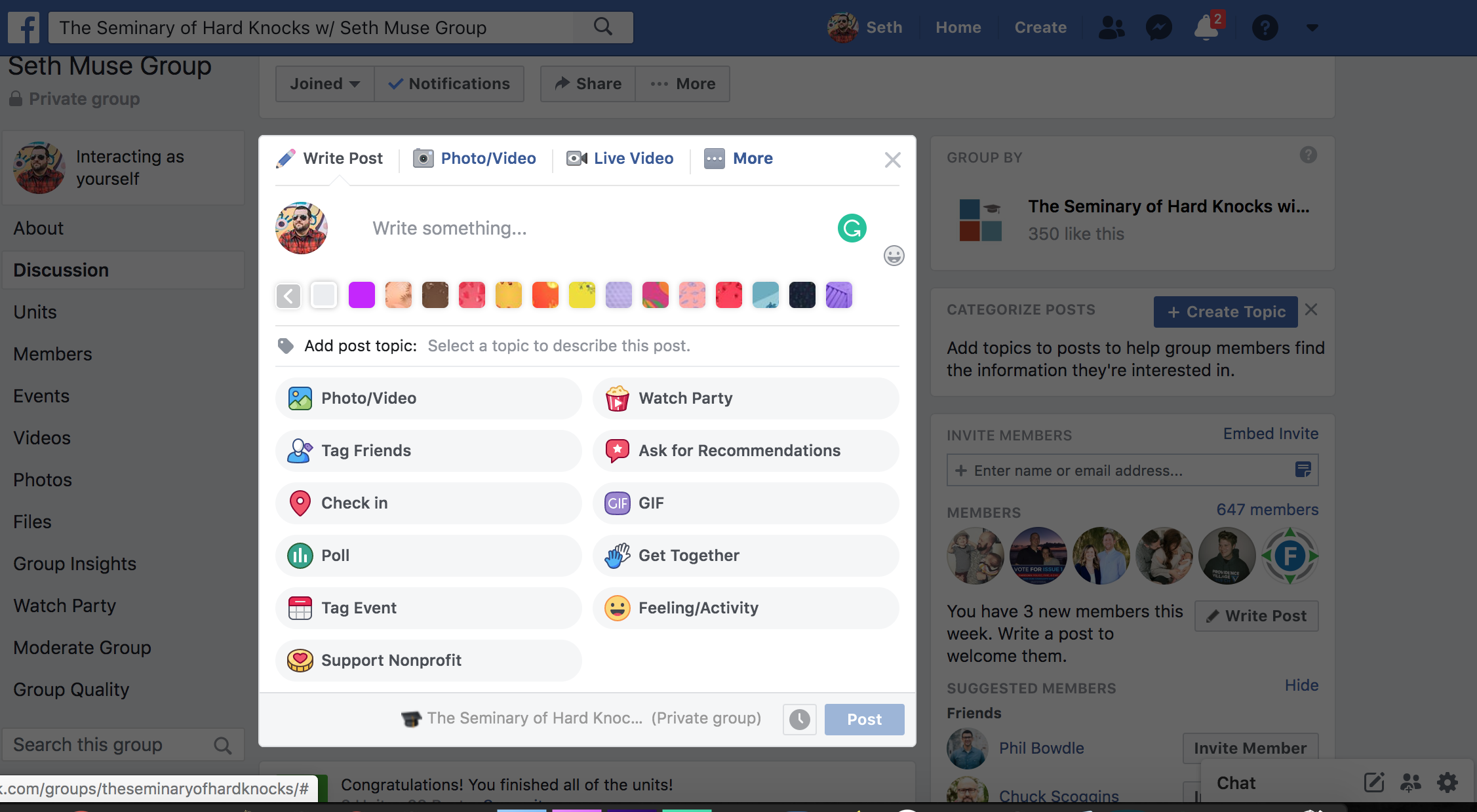If you haven’t started any Facebook groups yet, the time has come.
By now, it’s no secret that Facebook prioritizes content from groups over content from pages in the feed of the average user. So it makes sense to prioritize posting content to groups rather than pages so that your audience will be more connected and aware of you.
Think of it this way:
Facebook Page = Ads/Reaching new people
Facebook Group = Conversations/Community with your existing people
But we understand if this is a bit new and that running a group requires a little more time, so we’re going to give you some hacks to help you get started and see real success or make your current groups more successful.
Tell people about your Facebook Groups!
It may seem obvious, but you’d be amazed at how many times this step is overlooked. You have to let them know. One easy way is emailing your list about the new groups and giving them links to each one. You can run giveaways or make it an exclusive place to get certain information or perks so that people will have an incentive to join.
Tell them about the group from the stage during services, put it in the bulletin, and post about it on other social media channels (or your existing Facebook page) and make it easy to join it.
If you want them to join the group, then tell them to.
Fill out your Facebook Group bio!
Make sure you fill out the biographical information! Go to the More tab at the top of your group and click Edit Group Settings in the dropdown.
Fill in your name and don’t worry about the group type. Facebook decided to make all of them “General” anyway.
The “description” is right below that. This is your chance to explain what the group is about, set expectations, and let people know what they are going to get out of it. You can set group rules in this section too. You can use all of Facebook’s done-for-you rules with a few minor tweaks as a good place to start.
Go further down and you’ll see a place to fill in your location, so do that too. This helps Facebook connect your group and those who are searching for a church nearby. Next, save your changes before creating the unique URL. If you don’t, you may have to redo everything else again.
Last, scroll down to the section that says Web Address. That’s where you’ll see www.facebook.com/groups/insanenumberstring. You can change your URL after the /groups/ to something easy to remember. For example, your URL will then go from this www.facebook.com/groups/84773392833828380398347377 to www.facebook.com/groups/yourchurchname.
Setup Membership questions
Next, scroll down further in your settings and you’ll find something called Membership Questions. These are questions you can automatically ask those who request to join your group. If you have your group set to automatically allow people to join, then you won’t see this option. We recommend asking some questions and not allowing people to be automatically approved to join. This would be a Private setting for the group.
If you run a large church, it may be helpful to ask them identifying questions like “What campus do you attend?” This knowledge demonstrates that they actually go to your church or at least have a working knowledge of it and are not spammers.
Connect Apps and Pages to your Facebook Groups
Another great setup option for Facebook groups is to go ahead and connect any third-party apps you might use.
You might use Ecamm to broadcast Facebook Live videos and or Buffer to schedule posts to the group, so you’ll need to connect them on the Facebook side. When you click Add Apps, a window will open to search for apps you want to connect. Unless you connect the apps, you will not be able to use third-party software in your Facebook group.
Interact as the church or as yourself?
In a group for your church, there may be times you need to post as the church and not as yourself (personal profile). To toggle back and forth, there is a button in the top left corner under your group name that says “Interacting as Yourself.”
When you click it, it will bring up a menu of any pages you own that are also connected to the group, like this:
When making announcements, posted social media content, or handling trolls, you probably want to do that as the church page.
However, there’s no harm in letting people know that you are the social media manager at your church and that they can ask you things too. It’s good to know there is a real person speaking for the church that people can identify with, so don’t feel like it has to be the pastor or no one. Make sure your leadership knows and are OK with you interacting as yourself.
Create opportunities to interact.
This is the lynchpin of whether or not your Facebook group is going to succeed: value and interaction.
Anyone can create a group and get people to join it, but can you make it work? Facebook groups run on conversations, not promotional content. If you are simply after vanity metrics such as reactions and likes, this will fail in a month. Comments and responses are the bread and butter of a successful Facebook group.
You have to have a champion willing to engage the group in regular conversations. He or she will need to think strategically about what content will be 1) valuable enough to the group that they 2) want to talk about it which allows you to 3) talk back as the church. This can be a staff member or a volunteer, but both will need training and resources from the communications team.
Create questions, polls, photo galleries and live videos (not sermon streaming) that help people grasp and adopt your values as a church or inspire them with the great things going on around you. Pastors can go live and add things to their sermons they rand out of time to say last weekend, connections pastors can say hello to new members in the group, parents can learn about opportunities for students or you can post about last year’s mission trip to gain steam for the next one.
Whatever you do, you have to think “If I were standing in a group with these people in our church lobby, what would I want to talk to them about?” Make THAT content for groups and you’ll do great!
If you think “What do I want from them?” then you should expect the group to die out quickly. They’re not here for that.
That should help you set up your group and get a good start on running Facebook groups at your church. Work with Church Comm Team and we can help you build up a solid Facebook group strategy to engage your people too!


